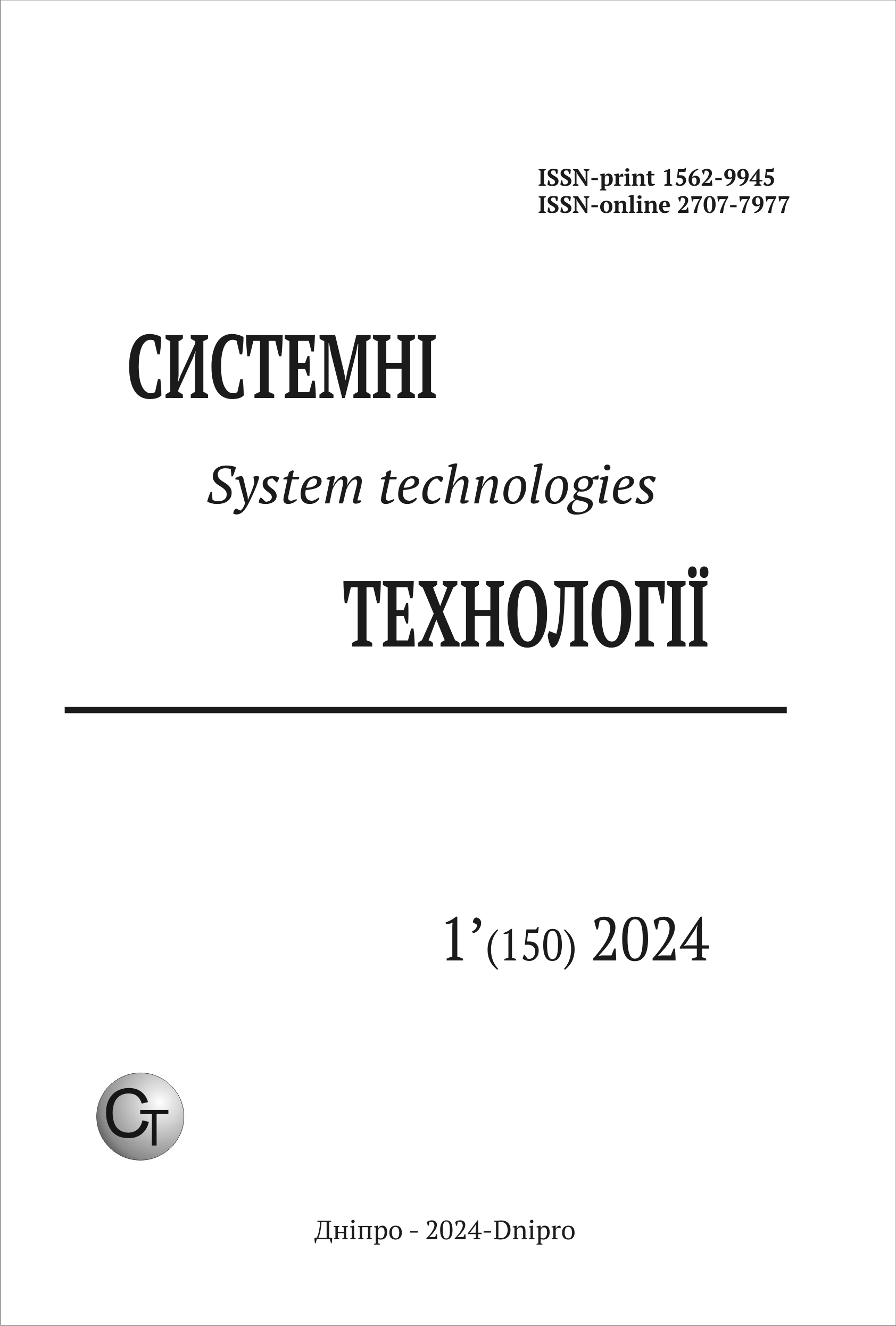СИСТЕМНИЙ АНАЛІЗ ТА МАТЕМАТИЧНЕ МОДЕЛЮВАННЯ ЧАСТКОВО-ДВОЕТАПНИХ ПРОЦЕСІВ РОЗПОДІЛУ МАТЕРІАЛЬНИХ ПОТОКІВ
DOI:
https://doi.org/10.34185/1562-9945-1-150-2024-08Ключові слова:
багатоетапні логістичні процеси, зонування територій, математична модель, задачі розміщення-розподілу, системний аналіз, оптимізація.Анотація
Розглянуто частково двоетапний процес розподілу матеріальних потоків у логістичній системі, елементами якої є підприємства, що виробляють певну продукцію і здійснюють її збут або безпосередньо споживачам, або через розподільчі центри. При цьому передбачається, що попит на продукцію неперервно розподілений по всій території деякого регіону. Мета роботи забезпечення зниження транспортних та організаційних витрат, пов’язаних із збутом та зберіганням готової продукції, для мережі виробничих підприємств шляхом розроблення моделей і методів оптимізаційних задач, які дозволять визначати кількість, місткість і координати розміщення розподільчих центрів і проводити організацію логістичних процесів, раціонально розподіляючи транспортні та матеріальні потоки між усіма учасниками логістичного процесу. Актуальність роботи обумовлена створенням територіально розподілених багаторівневих компаній, які здійснюють повний цикл виробництва від заготівлі сирови- ни з його комплексним використанням, випуском продукції до транспортування кінцевим споживачам через розподільчі центри. Математичне забезпечення сформульованих задач розміщення розподілу розроблено з використанням основних положень теорії неперервних задач оптимального розбиття множин, теорії двоїстості, методів лінійного програмування транспортного типу, су- часних алгоритмів недиференційованої оптимізації. Представлені моделі і алгоритми дозволяють вирішувати низку проблем стратегічного планування, що виникають у ви- робничій, соціальній та економічній сферах діяльності.
Посилання
Serhieiev, O., Us, S. (2023). Analysis of modern approaches to solving discrete and con-tinuous multi-stage allocation problems. Information Technology: Computer Science, Soft-ware Engineering and Cyber Security, 2, 59–70, doi: https://doi.org/10.32782/IT/2023-2-7.
Us, S. A., Koriashkina, L. S., Stanina, O. D. (2019). An optimal two-stage allocation of material flows in a transport-logistic system with continuously distributed resource. Radio Electronics, Computer Science, Control, 1, 256–271, https://doi.org/10.15588/1607-3274-2019-1-24
Yin, X. A multi-stage stochastic programming approach to epidemic resource allocation with equity considerations / Yin, X., Büyüktahtakın, İ.E. // Health Care Manag Sci, 2021, 24, 597–622, https://doi.org/10.1007/s10729-021-09559-z
Azizi, V., Hu, G.A. (2021). Multi-Stage Stochastic Programming Model for the Multi-Echelon Multi-Period Reverse Logistics Problem. Sustainability, 13, https://doi.org/10.3390/su132413596
Yan, L., Grifoll, M., Feng, H., Zheng, P., Zhou, C. (2022). Optimization of Urban Distri-bution Centres: A Multi-Stage Dynamic Location Approach. Sustainability,14, 4135, https://doi.org/10.3390/su14074135
Feng, B., Ye, Q. (2021). Operations management of smart logistics: A literature review and future research. Front. Eng. Manag., 8, 344–355, https://doi.org/10.1007/s42524-021-0156-2
Bakker, H., Dunke, F., Nickel, S. (2020). A structuring review on multi-stage optimization under uncertainty: Aligning concepts from theory and practice. Omega, 96, https://doi.org/10.1016/j.omega.2019.06.006
Dziuba, S., Koriashkina, L., Stanina, O., Lubenets, D. (2023). Mathematical models of op-timization problems of partially two-stage population evacuation with territory segmentation. Information Technology: Computer Science, Software Engineering and Cyber Security, 3, 13–21, doi: https://doi.org/10.32782/IT/2023-3-2
Koriashkina, L., Us, S., Odnovol, M., Stanina, O., Dziuba, S. (2024). Two-stage problems of optimal location and distribution of the humanitarian logistics system’s structural subdivi-sions. Naukovyi visnyk Natsionalnoho hirnychoho universytetu, 1.
Kiseleva, E.M., Koriashkina, L.S. (2015). Theory of continuous optimal set partitioning problems as a universal mathematical formalism for constructing Voronoi diagrams and their generalizations. II. Algorithms for constructing Voronoi diagrams based on the theory of op-timal set partitioning. Cybernetics and Systems Analysis, 51(4), 489-499. https://doi.org/10.1007/s10559-015-9740-y
Завантаження
Опубліковано
Номер
Розділ
Ліцензія
Авторське право (c) 2024 Системні технології

Ця робота ліцензується відповідно до ліцензії Creative Commons Attribution 4.0 International License.















